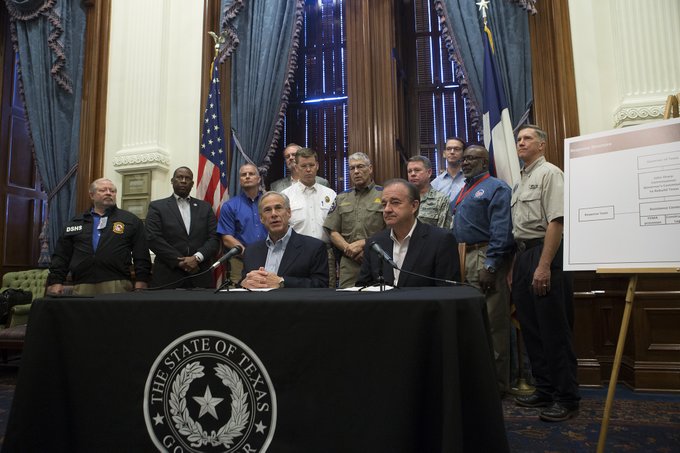
“The road to recovery is not going to be a short one,” said Texas Gov. Greg Abbott Thursday as he discussed the long and arduous task of rebuilding much of the state’s coastal area following devastating destruction left by Hurricane Harvey. The state’s “Texas-size response” to the multi-billion-dollar damages includes Abbott’s creation of the Governor’s Commission to Rebuild Texas.
As is the case in most natural disasters, private-sector vendors will play a key role in the recovery, and a coordinated effort between the public and private sectors will help speed recovery. Contracting opportunities were made available to private-sector firms immediately after Harvey hit the coast and the opportunities will expand and increase quickly now that the state is in recovery mode.
Construction, machinery, building products and engineering firms will be in high demand. Following Hurricane Katrina alone, a $100 million emergency FEMA contract was awarded to a construction and engineering firm for housing management and construction. Another similar firm also earned a $100 million contract to provide temporary housing and communications tools to hurricane victims. And a $30.9 million contract was awarded for repair of a bridge on Interstate 10.
As was the case during Katrina, cleanup and recovery from Harvey will also result in smaller contracts. Immediate needs will include services for debris removal, infrastructure repair, assessments of structural damages, new construction to replace public buildings and facilities, provision of temporary shelter and for food services. The contracting opportunities will continue for years as the state focuses on “future proofing” the repair and rebuilding work.
Calling Harvey a “catastrophic” storm that resulted in “unprecedented” destruction, Abbott said the enormity of that destruction is currently being revealed across regions of the Texas Gulf Coast as cleanup begins. To lead the state’s efforts, the governor named longtime Texas politician and current chancellor of the Texas A&M University System, John Sharp, to lead the Commission to Rebuild Texas.
John Sharp is a proven leader with unique skillsets. He served Texas previously as a member of the Texas House and Senate, a Texas Railroad Commissioner and as the state’s Comptroller of Public Accounts. His government experience provides a solid foundation for working with local, state and federal officials. Sharp is also a highly visible proponent of public-private partnerships (P3s). The A&M System has a P3 pipeline of projects worth billions.
The governor has estimated that the costs to help Texas rebuild will likely approach $180 billion. The U.S. House has approved an initial $7.9 billion in disaster relief funds while the Senate, in anticipation of possible heavy damages from Hurricane Irma that is bearing down on U.S. coastal states from Florida to the Carolinas, nearly doubled the initial relief spending proposal to $15.2 billion. The Senate version now goes back to the House for approval and then on to the president for his signature.
Already in the fast lane, this legislation will mean contracting funds will be available very quickly. Already, the Federal Emergency Management Agency has approved Texas’ request for Community Disaster Loan assistance to affected cities.
The Texas plan laid out by Abbott features an “assistance center” team of on-site subject experts who will gather information, make assessments and prioritize needs.
Sharp indicated that meetings have already been scheduled for this week with local officials in two storm-affected cities and that restoration efforts will “proceed with urgency.” Private-sector firms should not waste time in taking necessary steps to participate in this multi-billion-dollar cleanup and restoration.
Mary Scott Nabers is president and CEO of Strategic Partnerships Inc., a business development company specializing in government contracting and procurement consulting throughout the U.S.
